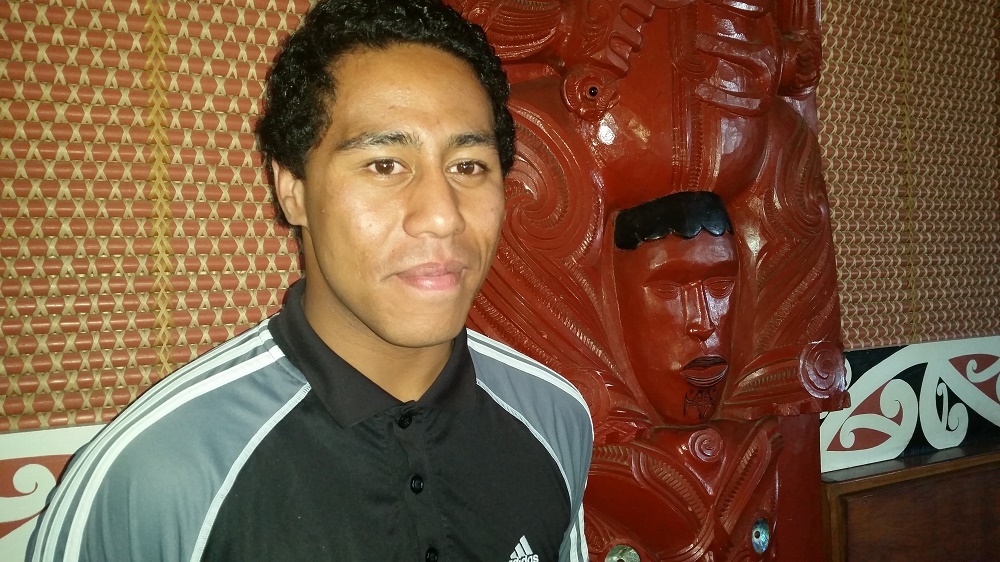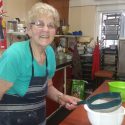Fifteen-year-old Tuauri Reriti is surprisingly wise for his years. As an ‘at risk’ ten-year-old, he was lucky enough to be caught shoplifting. Lucky because his punishment included working with Uncle Konga at the Owhiti Urupā. It was the beginning of a new direction for the academically gifted teenager.

“I can do whatever needs doing – I can be in the speaker’s position, in the kitchen, setting up the buffet, showing visitors around…being on the marae teaches you life skills”. – Tuauri Reriti
A year ago he asked his whanaunga, marae manager Peggy Luke-Ngaheke, if he could go and live with her family. He wanted to be around people who were connected to their culture and could help him realise his potential, something he felt he couldn’t get at home.
His parents, who he has a good relationship with and sees regularly, agreed to the change. Now, when he’s not in school, Tuauri spends his time helping out around the marae and the urupā and soaking up the knowledge of his elders.
“It was the experience of the marae that attracted me,” says Tuauri. “The tradition and history. But the culture is my main thing.”
Tuauri is from the Puketapu line and his tīpuna migrated to the Waiwhetu area from Taranaki.
Strong foundations at kohanga reo
When Tuauri was a child, his nanny was a teacher at the first marae-based kōhanga reo. When her mokopuna moved on to kura, his nanny Parekohai Reriti moved to the kura kaupapa. She had a big influence on him. “I speak Grandma’s dialect – she was Tūhoe and Taranaki. They drop the ‘g’.”
His other passion is music. “Music is probably my favourite thing”, he says. When he was at Hutt Valley High he got introduced to the cello, then the violin. He joined the school orchestra and played in a school ensemble and he’s never looked back.
“I learnt to read music and to compose. I love all kinds of music but I really love classical – my favourite piece is Mozart’s Piano Concerto 20.”
Music is not his only interest however, as he is a budding scientist. He has been offered a mentor from the Callaghan Institute, based at Wellington’s Victoria University. It hasn’t started yet but he is excited about the possibilities it might offer for the future.
Marae teaches life skills
Tuauri says he loves to be at the marae and working whenever he can.
“I can do whatever needs doing – I can be in the speaker’s position, in the kitchen, setting up the buffet, showing visitors around..being on the marae teaches you life skills. My friends from across the board come and visit. This place provides a cultural base, a way of knowing who you are. Our tīpuna have done so well keeping it alive without the language.”
He shares an affinity with Aunty Hina, who has given a good grounding in how to operate in the kitchen. “Aunty Hina is a perfectionist – she says if everything is right in the kitchen, it’s right everywhere.”
Tuauri is very clear about his future.
“I have an obligation to our people. The marae pulls people back to it and that helps us to be strong and understand who we are.”


